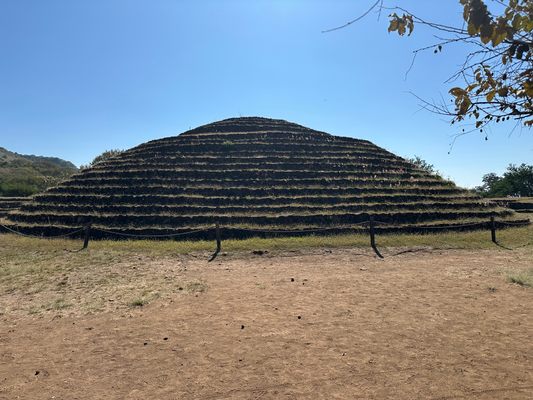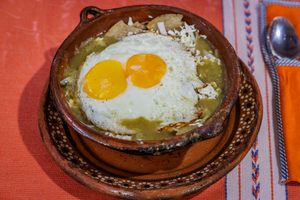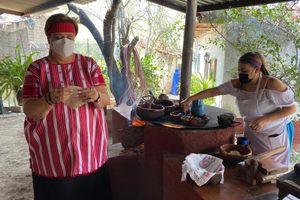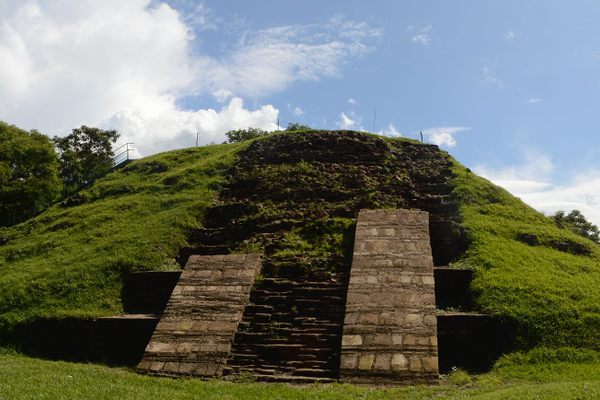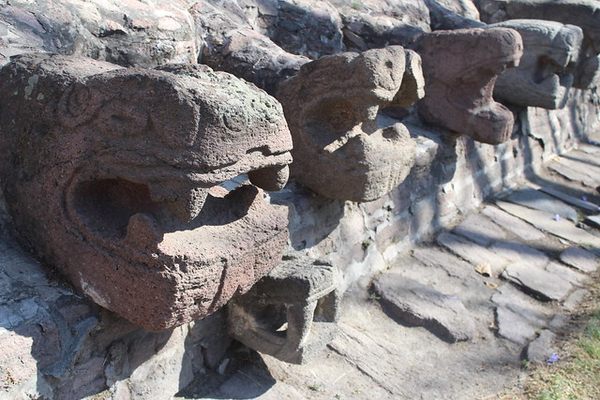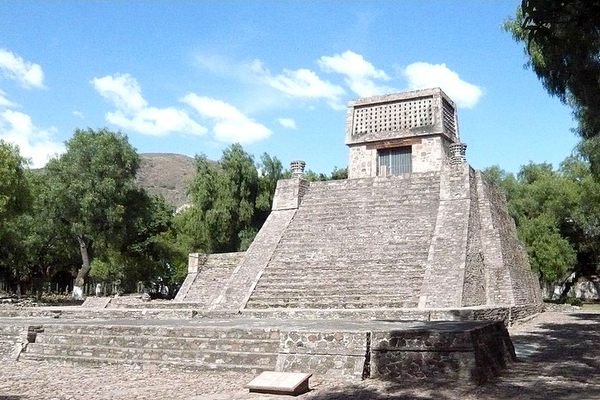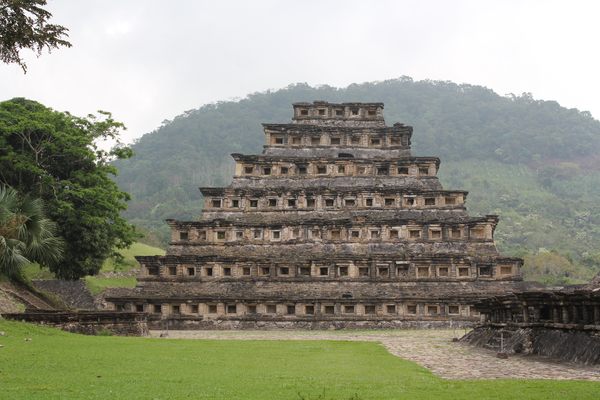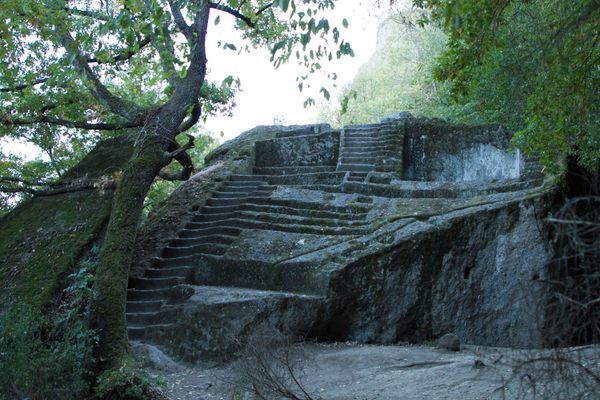About
Los Guachimontones represents the largest discovered site from a culture that once flourished in the Tequila Valley region between 300 BC-900 AD/CE.
The reconstructed site and accompanying Interpretive Center were created to help people learn about the lost culture.
The Teuchitlan culture is known for its distinct circular, step pyramid structures (described as looking like a layer cake or bee hive) consisting of a round central altars (a style that is called "Guachimontón") surrounded by a circular patio space, and a circular banquette on which sits four to sixteen rectangular or square platforms. The connection between the Teuchitlan culture and the larger, older Shaft-Tomb culture (500BC-400CE) is blatant. Shaft-tombs are found directly underneath the platforms in the guachimonton structures. Though whether the shaft-tombs came first at the structures or not is still under investigation.
Excavations at other Teuchitlan sites have shown similar constructions, and that a post hole would have been located in the central altar (or sometimes central space if the altar is lacking) during rituals. Ceramic dioramas of the full guachimontons, unique to the Mesoamerican region, from shaft-tomb and guachimonton site excavations, display pole ceremonies that the Teuchitlan community members performed all across their culture. Often they display where a leader would climb the pole as a devotional act to their god. However feasting, musical instruments, and even burials are also depicted in these dioramas.
American archaeologist Dr. Phil Weigand and his wife Celia Weigand discovered the Los Guachimontones site in 1969. Dr. Weignad, through drive-by and regular archaeological survey recorded over 200 guachimontones around Western Mexico, the majority being in the Tequila Valleys area in highland Jalisco.
While the connection between the Teuchitlan culture and the greater Mesoamerican pantheon is unclear, there is evidence of some old gods worship. These possible connections are being studied primarily by the Colegio de Michoacan and they run the Los Guachimontones labs.
Related Tags
Know Before You Go
From the Guadalajara airport it is approx. one hour away by taxi (the ride is about $40/400 pesos). It is considerably longer via bus, and unless you know your way around Tequila Valley, it is not recommended as even residents of Guadalajara can end up lost.Taxis and buses will usually drop you off at the entrance to the town of Teuchitlan. There are signs pointing you in the direction of the site and interpretation center which is to the northeast of the town. The hike is long, and has some very steep inclines if you are walking. If you took a taxi you may be able to convince the driver to take you all the way up to the Interpretation Center.If you continue up from the Interpretive Center, it is another steep incline hike to the actual archaeological site. Please bring water and proper sun blocking clothes, there is not much shade on the walk up.A secondary site called Loma Alta is also available to see, but requires either a very long hike or a good sturdy truck. If you are interested in seeing it please ask one of the Interpretive Center guides.
Yucatan Family Adventure: Meteors, Pyramids & Maya Legends
Explore Maya temples and learn about the asteroid that wiped out the dinosaurs.
Book NowCommunity Contributors
Added By
Published
October 17, 2014
Sources
- https://ucdenver.academia.edu/ChristopherBeekman
- http://en.wikipedia.org/wiki/Guachimontones
- https://web.archive.org/web/20081006223317/http://carbon.cudenver.edu/~cbeekman/research/guachimonton.html
- http://www.tequilatourism.com/content/interpretive-center-guachimontones/teqd9c7896a7a5041e7b
- "The Ex-Laguna de Magdalena and pre-Columbian settlement in Jalisco, Mexico: The integration of archaeological and geomorphological datasets" by Dr. Christopher Beekman






